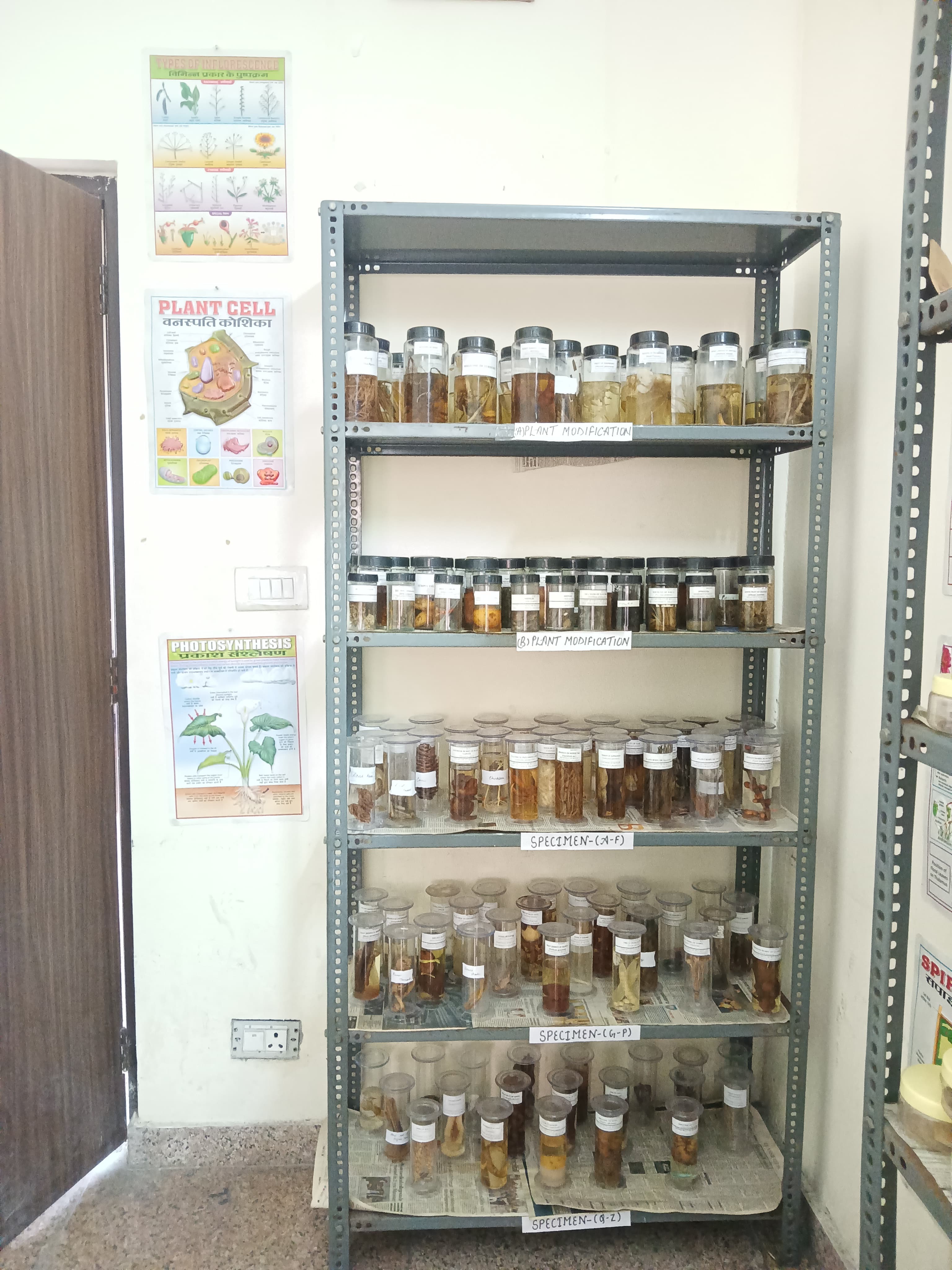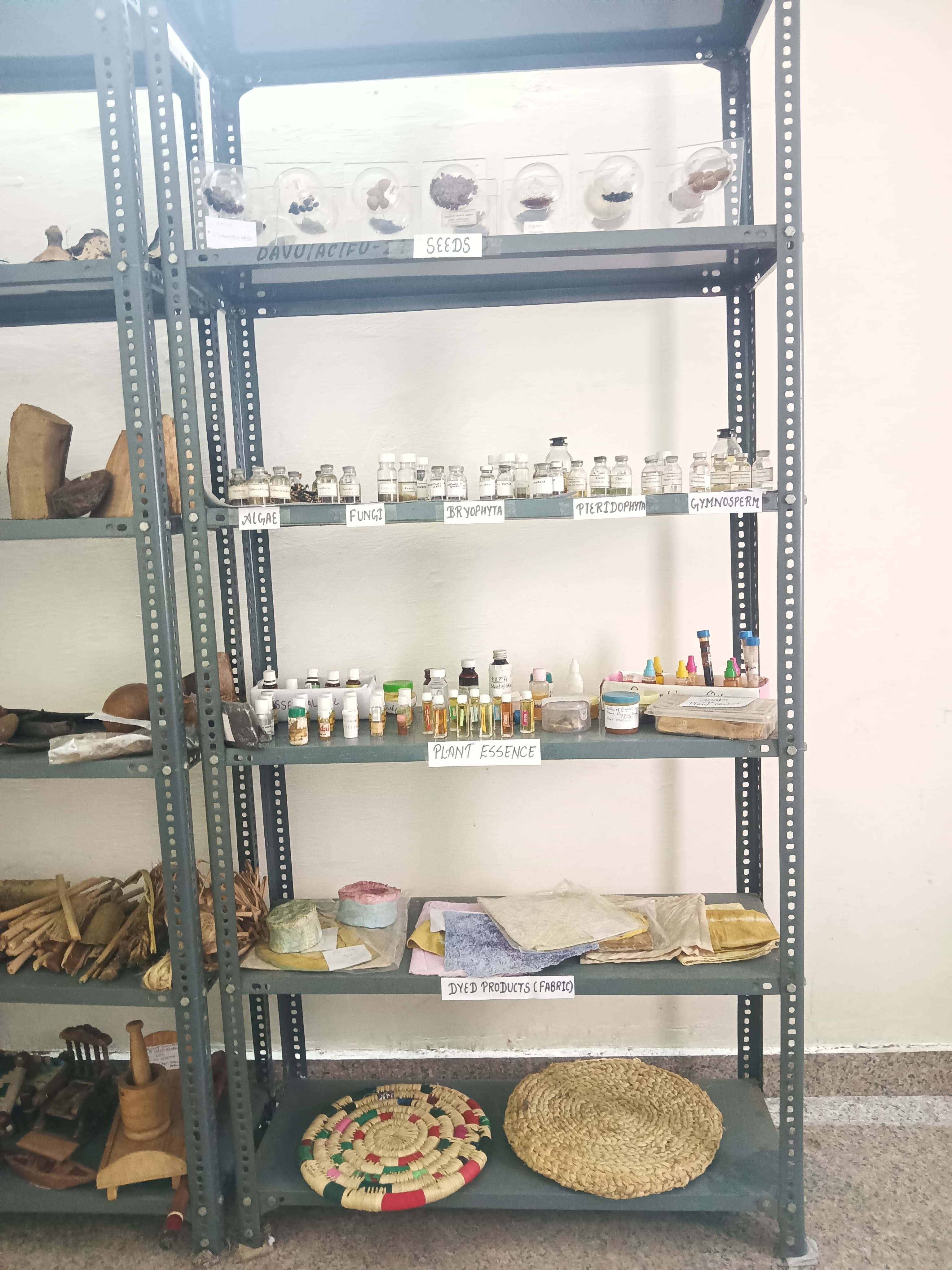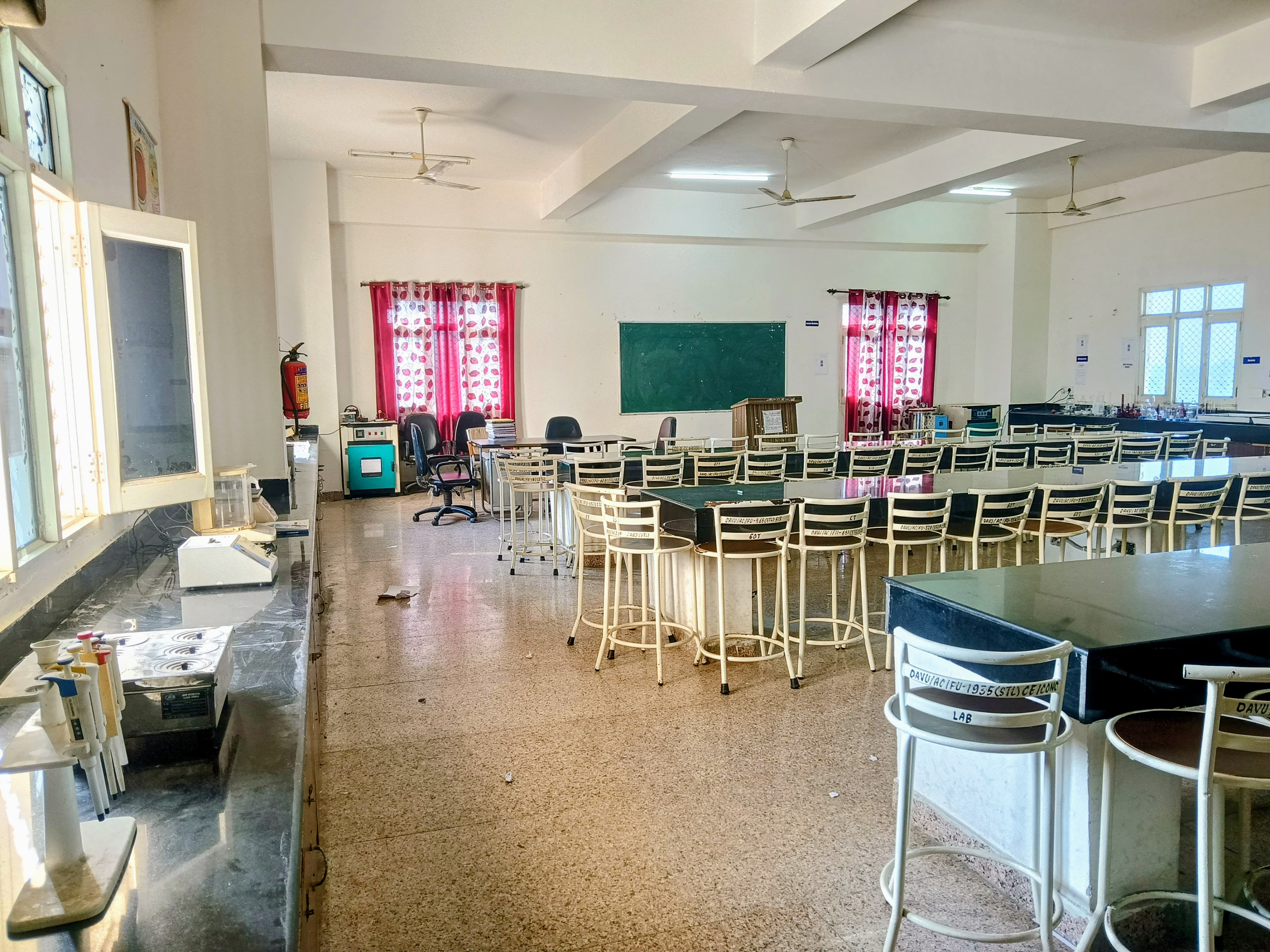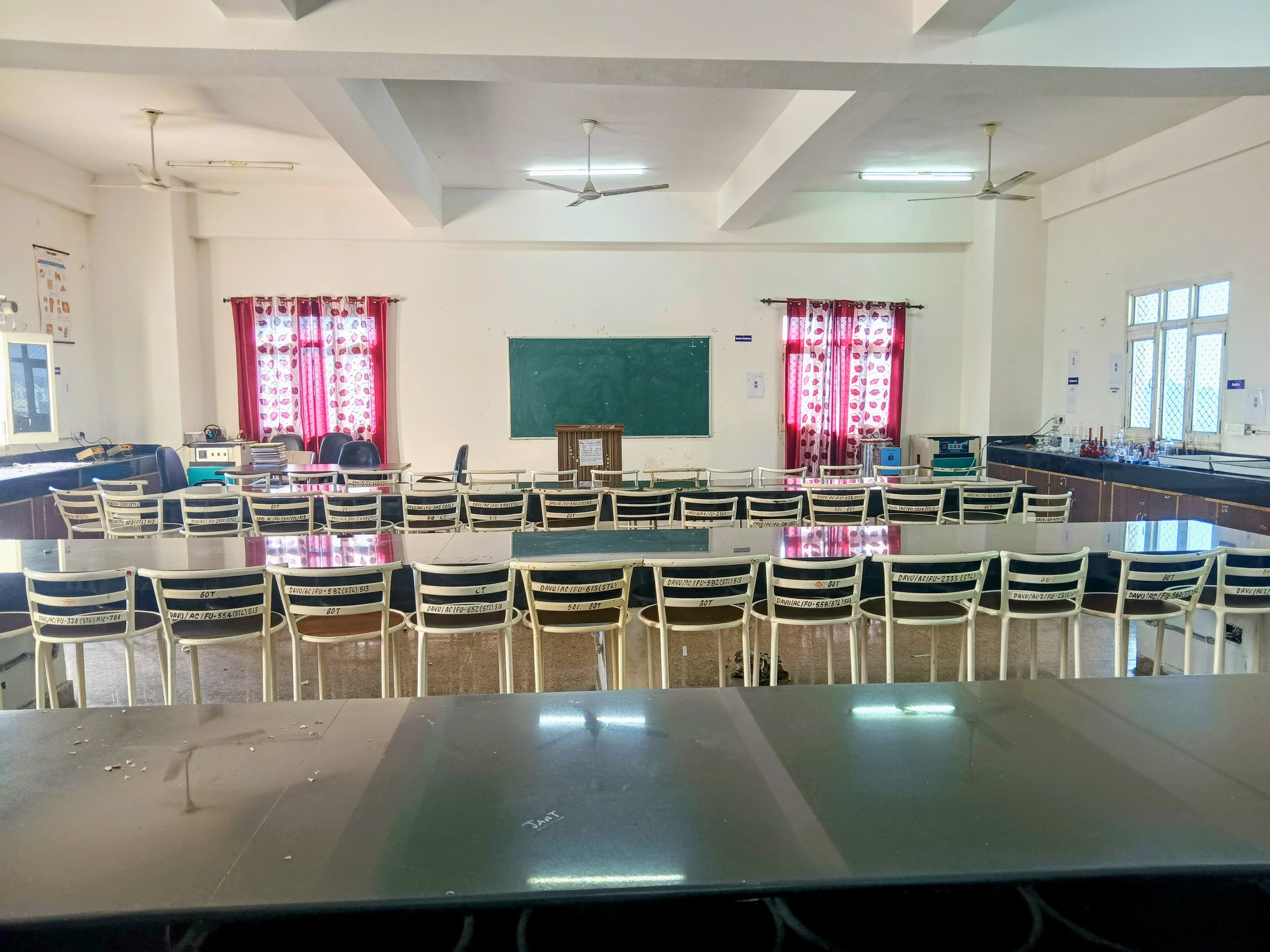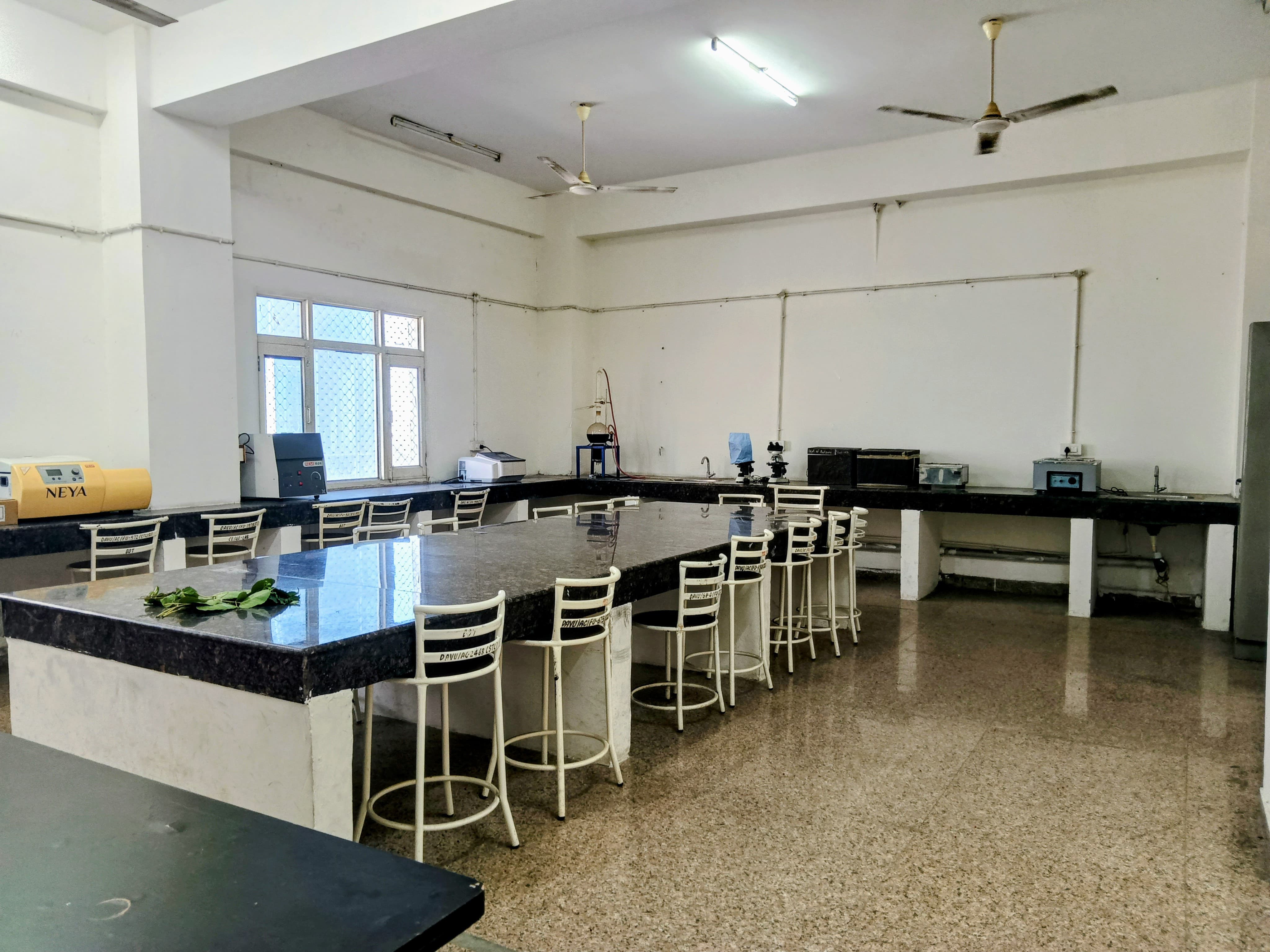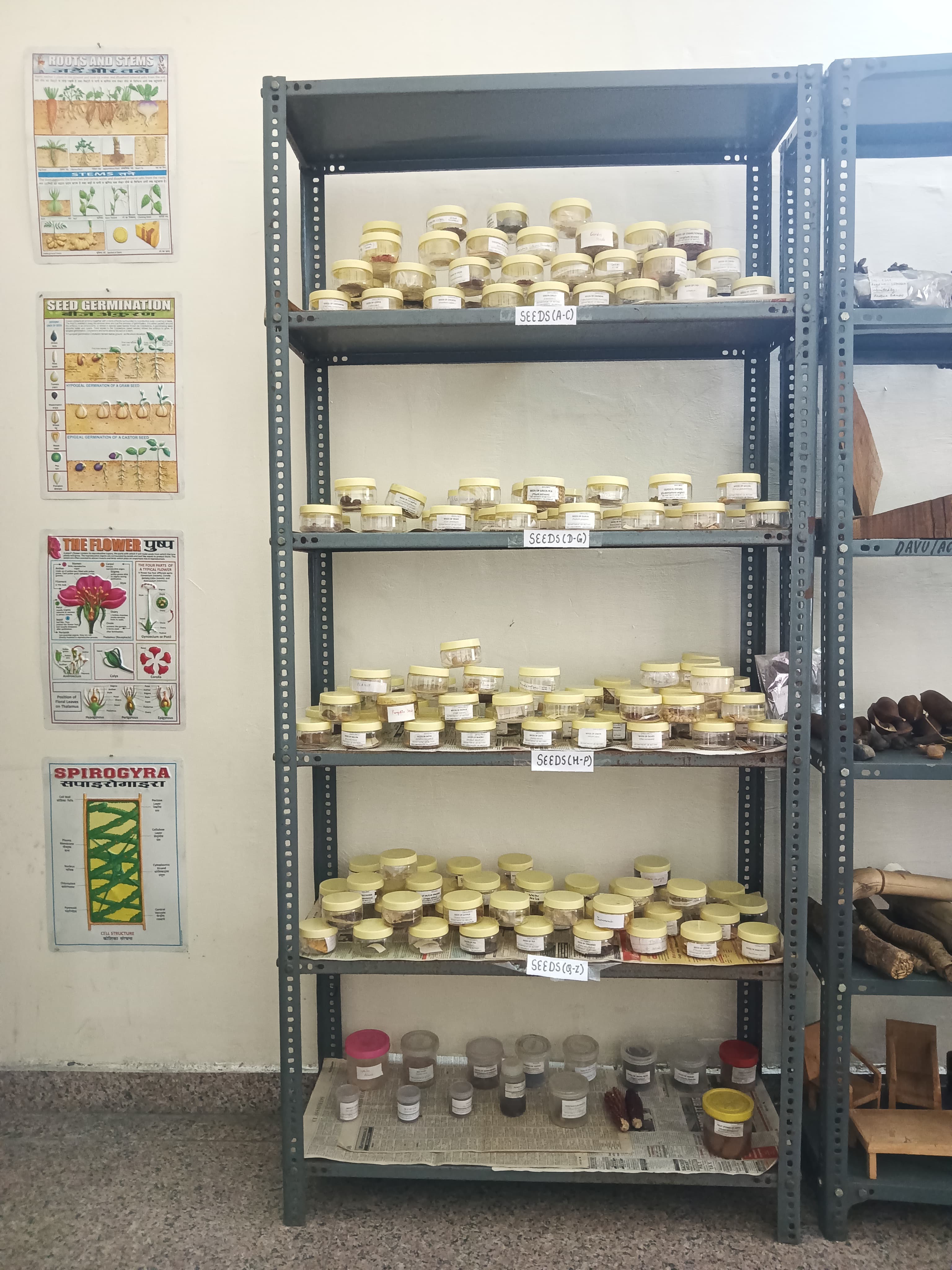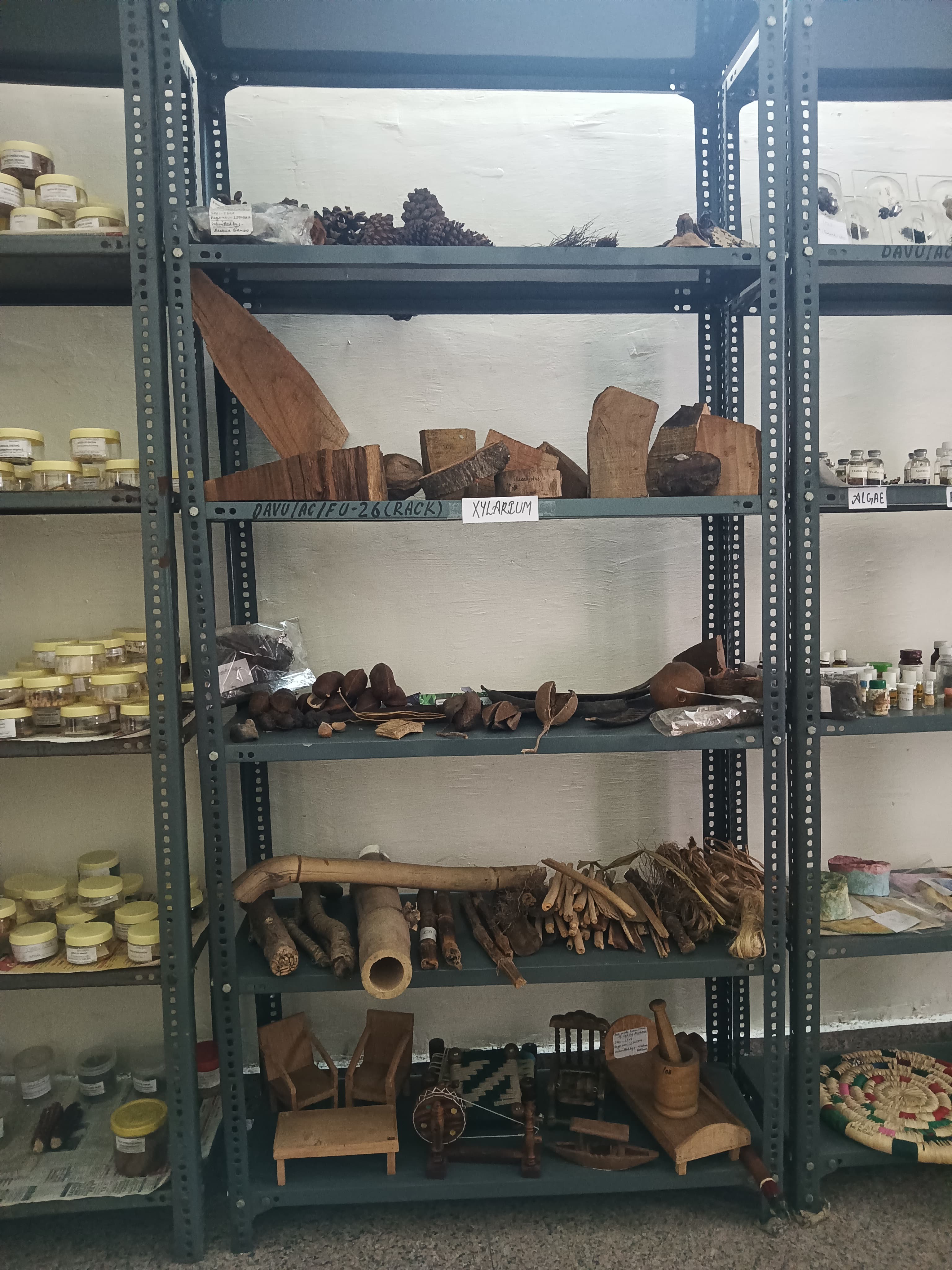The laboratories of Botany and Environmental Science serve as the cornerstone for hands-on learning, research, and experimentation within the department. It is designed to provide students and faculty with the resources needed to explore, analyse, and apply scientific concepts in botany, ecology, environmental science, and conservation biology. The lab plays a pivotal role in supporting both undergraduate and postgraduate courses by facilitating practical skills development, fostering independent research, and advancing the department’s scientific inquiries. The laboratory is well-equipped with modern tools and technology to support a wide range of experiments and analyses:
- Plant Growth Chambers: For controlled studies on plant growth, stress responses, and environmental conditions such as light, temperature, and humidity.
- Microscopes and Imaging Systems: Advanced light microscopes, fluorescence microscopes, and digital imaging systems to study plant cells.
- Water and Soil Analysis Kits: To assess water quality (pH, turbidity, chemical contaminants) and soil health (nutrient content, pH, etc.).
- pH and EC Meters: Essential for measuring soil pH and electrical conductivity, helping students study the relationship between soil chemistry and plant nutrient uptake.
- Plant Nutrition and Soil Interaction Studies: Examining the uptake of essential nutrients by plants, including nitrogen, phosphorus, and micronutrients, and their impact on growth and development.
- Genetic and Biochemical Analysis: Conducting studies on plant hormones, gene expression, and metabolic pathways to understand how plants adapt and regulate physiological processes.
The lab supports a variety of activities, ranging from routine exercises to innovative research projects:
- Plant Ecology Studies: Research on plant distribution, growth patterns, reproductive strategies, and ecological interactions.
- Environmental Impact Assessments: Studying the effects of human activities (e.g., pollution, deforestation, climate change) on ecosystems and biodiversity.
- Toxicology and Pollution Studies: Evaluating the effects of pollutants (e.g., heavy metals, pesticides) on plants, soil, and water.
List of Equipment:
1. Autoclave
2. Centrifuge
3. Colorimeter
4. Conductivity meter
5. Fluorescent microscope
6. Hot air oven
7. Hot plate
8. Incubator
9. Magnetic stirrer
10. Micropipettes
11. Microscopes (Monocular, Binocular, Trinocular, Dissection)
12. pH meter
13. Refrigerator
14. Stereomicroscope
15. Ultrasonic cleaner
16. Vortex shaker
17. Water bath
18. Weighing balance
